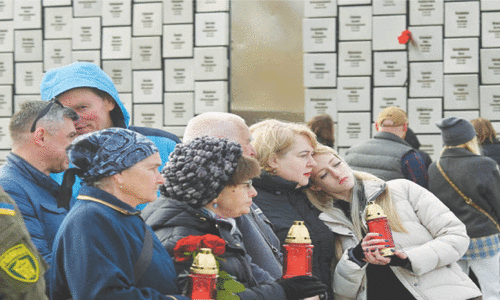ISLAMABAD: Expressing dissatisfaction over inordinate delays in dispensation of justice, a Supreme Court bench on Wednesday settled an extraordinary inheritance dispute by ruling in favour of a woman deprived of a rightful share in her father’s property by her three brothers.
What is extraordinary about the case between siblings Islamuddin and Noor Jahan, however, is that both parties have already passed away.
The matter, which had been dragging on for about a quarter of a century, was finally laid to rest by a two-member bench, consisting of Justice Ejaz Afzal Khan and Justice Qazi Faez Isa.
In its final order, the bench observed, “A sister, to claim her rightful inheritance, was compelled to go to court and suffered long years of agony. However, before [she] could get what was rightfully hers, she too departed from this world... A quarter of a century has elapsed since the death of Haji Sahraney (the deceased father). Such a state of affairs, to say the least, is most unfortunate.”
Verdict handed down 25 years after father’s death; bench deplores delays in justice delivery
The court disposed of a petition, moved by the late Islamuddin, assailing a June 27, 2012 judgment of the Peshawar High Court, which had ruled in favour of his sister.
The dispute between brothers and sister started soon after the death of their father around 1990-91. “The deceased owned a house, four shops, godowns with rooms and corridors in addition to agricultural lands [in Swat]”, which were supposedly gifted by the late father to his three sons, Islamuddin, Rehmanuddin and Shahabuddin, on June 26, 1989.
The sole evidence of this ‘transaction’ was a Pashto document, bearing only the signature of Haji Sahraney.
Noor Jahan had instituted a suit against her brothers before a local court in Swat, contending that she was entitled to a 1/12th share in the estate of her deceased father as per Sharia law. The suit was partially allowed, with the qazi giving her a share in the agricultural lands, but not the gifted properties. Both sides then went into appeal.
However, the apex court held that the document was not registered and therefore remained unproved. On the other hand, the property mutations, which were registered with the local patwari, only bore the deceased man’s thumb impressions. This inconsistency, the court noted, remained unexplained.
The bench also noted that the three brothers did not bother to obtain the mutations of the property in their names following the death of Haji Sahraney.
This is not the first time the top court has demonstrated consternation over delays in deciding cases.
Former chief justice Jawwad S.Khawaja, speaking at a reference hosted in honour of his retirement on Sept 9, 2015, had cited a study – conducted on his orders while he was a Supreme Court judge.
The results of the study were ‘frightening’, said Justice Khawaja, deploring that it had become very common for litigation to take 25 years to culminate.
Published in Dawn, March 3rd, 2016












































